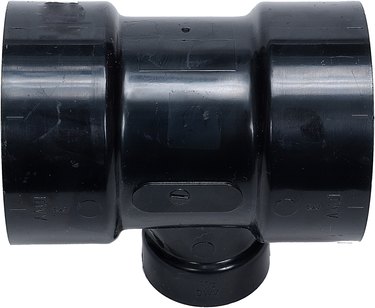Things You'll Need
Check valve
Tee fitting
PVC pipe cement
PVC pipe cleaner

In certain applications it may be desirable to have a dual sump pump system. If the water flow into the sump basin varies from moderate to heavy, a second pump may be the solution. The second pump can also provide a backup in the event of a motor or other mechanical failure of the primary pump. A dual pump system will nearly double the material cost of the project, but installation will be only moderately more difficult.
Step 1
Design and excavate an over-sized sump basin with a base large enough to hold two sump pumps side by side. There should be a minimum of 2 inches clearance between the two pumps, as well as 2 inches of clearance on all sides of the pumps. These pumps can be either submersible pumps or pedestal pumps, or one of each. Normally the sump pump will be on a dedicated circuit. In this case, both pumps can be on the same circuit, but the circuit must not provide power to any other device or area of the home.
Video of the Day
Step 2
Install the two sump pumps in the sump basin. Install a short piece of drain pipe into the outlet port of each pump. Atop each section of pipe, install a check valve to prevent the water from one pump being forced toward the other. The two drain lines can then be extended up and joined with a tee fitting before continuing on as a single drain line. This line should extend out of the house and to a designated drain area.
Step 3
Set the activation point of each pump. Sump pumps are designed to activate when the water reaches a certain height, then pump out all of the water in the basin before shutting off and allowing the basin to refill. With a duel pump system, you can set the primary pump to activate at a certain level, with the second pump only being activated if the water reaches a higher level. In theory, the only way the water could reach the higher level was if the main pump failed, or if the incoming water was exceeding the main pump's ability to remove it—in which case, the second pump would be required. A second option is to set both pumps to activate at the same water level, thus removing the water twice as fast and, therefore, requiring each pump to work only half as long.
Tip
While you can use two totally different types of pumps, for simplicity of service and installation, you will be better off purchasing two identical pumps.
Warning
Install a slightly larger drain line, up to 2 inches in diameter, if you plan to have both pumps operating at the same time.
Video of the Day